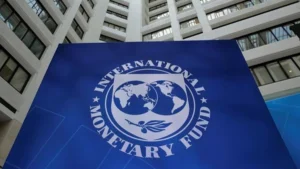1. Introduction
In May 2025, the Corporate Accountability and Public Participation Africa (CAPPA) published a follow-up to its 2024 report on sugar-sweetened beverages (SSBs) and processed food marketing. Titled “Junk on Our Plates: Exposing Deceptive Marketing of Unhealthy Foods Across Seven States in Nigeria,” the report calls for a steep increase in the SSB tax—from ₦10 to ₦130 per litre. CAPPA argues that marketing strategies employed by beverage companies significantly influence consumer habits and contribute to the rise in non-communicable diseases (NCDs).
While the report raises important concerns, its recommendations are based on weak data and flawed assumptions. This review provides a critical analysis of CAPPA’s policy proposals and their implications for Nigeria’s economy and public health.
2. Key Claims and Recommendations by CAPPA
CAPPA’s Main Assertions:
- SSB and processed food industries exploit cultural and linguistic ties to deepen market penetration. For instance, arguing that the use of local language “evokes local traditions.”
- Increasing consumption of sugar and sodium is directly linked to rising cases of obesity, diabetes, and hypertension, but the World Bank argues that “it significantly contributes.”
- Current health measures, including the ₦10/litre SSB tax and trans-fat regulations, are inadequate due to poor enforcement.
Policy Recommendations:
- Increase SSB tax from ₦10 to ₦130 per litre.
- Launch a national sodium reduction programme.
- Introduce mandatory front-of-pack health warnings.
- Ban culturally adapted advertising strategies.
- Increase enforcement of marketing and labelling standards.
3. Analysis of the CAPPA Reports
3.1 Selective Use of Data
CAPPA’s first report cites Adetiloye et al., which highlights a high prevalence of obesity, particularly among urban women, due to sedentary lifestyles and dietary changes. However, CAPPA’s own findings show higher SSB consumption among young males aged 15–19, creating a mismatch between cause and effect in its justification for an SSB tax hike. CAPPA has not updated its data but has reached the same conclusions. Furthermore, CAPPA attributes rising obesity solely to SSBs, despite the Adetiloye et al. report pointing to multiple causes, including processed foods, income levels, and urbanization.
3.2 Inadequate Evidence of Impact
CAPPA fails to provide evidence that the existing ₦10/litre tax has reduced SSB consumption or improved health outcomes. Without a clear assessment of the current policy’s effectiveness, its recommendation for a 1200% tax hike lacks credibility.
3.3 Executive Secretary of the National Sugar Development Council) and journalist Abdullahi Yunusa, reported that Nigeria’s per capita sugar consumption stood at just 6.9kg in 2018—one of the lowest figures in West Africa.”
4. Economic Realities of the SSB Sector
4.1 Complex Industry Structure
The SSB industry in Nigeria is highly fragmented and dynamic, with diverse consumer segments and distribution channels. Tax enforcement in this environment is inherently challenging and risks disproportionately impacting small and medium enterprises (SMEs).
4.2 Heavy Tax Burden
In addition to the SSB tax, beverage companies already pay:
- 30% Corporate Income Tax (CIT)
- 5% Value Added Tax (VAT)
- 3% Tertiary Education Tax (TET), up from 2.5% in 2023
Combined, these taxes can exceed 40% of gross profit. According to PwC, the effective tax burden in the non-alcoholic beverage sector reaches 45%, making further excise increases unsustainable. The tax reform bills passed by the National Assembly is expected to streamline these taxes when it becomes law.
5. Fiscal and Policy Concerns
5.1 No Clear Revenue Data or Health Spending
Since the implementation of the SSB tax in 2022, the government has not released data on revenue generated or how those funds have been used to support health services. Without transparency and earmarked spending, the tax risks becoming a revenue-generation tool with little public health return.
5.2 Disproportionate Focus on SSBs
The World Bank notes that while SSBs are a significant source of added sugars, they are not the only contributor to poor diets and rising NCDs. A narrow policy focus on SSBs ignores broader issues such as processed food consumption, physical inactivity, and health literacy. Targeting sugar-sweetened beverages alone is arbitrary and discriminatory, as they do not have a unique impact on obesity or diabetes and do not make up a unique part of concern about overall diets. Sugar-sweetened beverage taxes raise prices for families already facing cost of living crises and disproportionately affect low-income consumers, without any evidence they improve health.
6. CAPPA’s Simulation: Flawed and Risky
CAPPA’s simulation predicts a 29% drop in SSB consumption with a 39% increase in retail prices, targeting young people as the most price-sensitive group. WHO has twice reviewed and acknowledged (in 2017 and 2023) that sugar-sweetened beverage taxes are not “Best Buys,” which is their highest level of recommended health policy interventions, as there is not enough evidence to recommend them as cost-effective or impactful. See Health Financing and Economics.
However, such a dramatic price hike could lead to:
- Job losses in manufacturing and distribution
- Collapse of local beverage companies
- Reduced government revenue from a shrinking taxable base
7. Policy Alternatives and Recommendations
7.1 Strengthen Enforcement, Not Just Tax Rates
- Prioritize enforcement of NAFDAC’s labelling and trans-fat regulations.
- Crack down on misleading health claims and deceptive marketing.
7.2 Broaden Public Health Interventions
- Introduce nutrition education in schools.
- Promote physical activity and wellness programs.
- Target dietary change across socioeconomic groups.
7.3 Evidence-Based Fiscal Policy
- Commission independent research to evaluate the effectiveness of the current ₦10/litre tax and its impact on health outcomes
- We recommend that a Total Dietary Intake Study for Nigeria be embarked on to understand where all calories come from to support a total society and balanced intervention.
- Institute a Regulatory Impact Assessment, to evaluate the impact of any proposed Increase on (economic, jobs etc. across the industry value chain, for an Informed decision and data-driven policy making.
- Publish annual reports on revenue generated and its use in health interventions.
- Avoid sudden and excessive tax increases that could destabilize an important industry.
8. Conclusion
CAPPA’s latest report highlights legitimate health concerns but overextends its argument by proposing a steep and unjustified increase in the SSB tax. Without reliable data, a comprehensive strategy, or consideration of economic realities, the recommendation amounts to a “trigger-happy” fiscal policy. A more balanced, evidence-based approach is essential—one that addresses both public health and economic sustainability.
Bibliography
- Junk on our plates: Exposing Deceptive Marketing of Unhealthy Foods Across Seven States in Nigeria. https://cappaafrica.org/wp-content/uploads/2025/05/Junk-on-our-plates-Offline-Monitoring-Report.pdf
- Taxes on Sugar – Sweetened Beverages: international Evidence and Experiences. Sept. 2020. https://openknowledge.worldbank.org/server/api/core/bitstreams/4ca4b739-f713-5a89-aca2-02ec50976e7c/content
- Health Financing and Economics. https://www.who.int/teams/health-systems-governance-and-financing/economic-analysis



